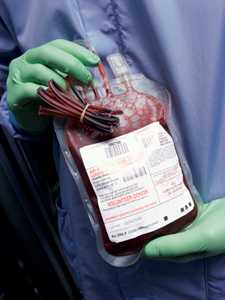Public Health Department Resources
National Surveillance
Surveillance is the ongoing collection and analysis of data and the timely dissemination of information so that action can be taken. State, local, and territorial health departments notify CDC of cases of some parasitic diseases, known as nationally notifiable conditions. Links to the national case definitions and disease-specific case report forms are available below.
CDC's Morbidity and Mortality Weekly Report (MMWR) publishes weekly summaries of nationally notifiable disease data, periodic surveillance reports for selected diseases and conditions, and an annual summary of nationally notifiable diseases.
As of January 2014, six parasitic diseases are nationally notifiable. Information, including case definitions and case report forms, if available, can be found on the disease-specific pages:
More on: Nationally Notifiable Disease Surveillance System
Investigating Transfusion-Associated Parasitic Infections

Investigating transfusion-associated parasitic infections is valuable to public health. Information collected about transfusion-associated parasitic infections also helps inform policies to keep the U.S. blood supply safe.
Transfusion investigations are important, but they also can be challenging. For example, multiple donors may need to be investigated, and the investigations may involve multiple states. Investigations should be well-coordinated among public health agencies, blood centers, transfusion services, clinicians, and laboratory scientists.
CDC can be consulted regarding all aspects of diagnosing, treating, and investigating potential transfusion-associated parasitic infections. To facilitate conducting the investigations, CDC has developed forms and instructions, which are provided below. The investigation forms are not OMB-approved; they may be downloaded and modified to suit the needs of the user and the particulars of the case at hand. If the diagnosis is babesiosis, the Transfusion-Associated Babesiosis form can be used to supplement the generic Transfusion-Transmitted Infections form.
Generic Transfusion-Transmitted Infections Form
- Transfusion-Transmitted Infections (Generic) Form – Fillable PDF [PDF, 451 KB, 6 pages]
- Instructions: Transfusion-Transmitted Infections (Generic) Form [PDF, 54 KB, 8 pages]
This form includes basic demographic variables and tables for tracking and recording information about blood donors, donations, transfusions, and recipients. It may be used during the investigation of any parasitic infection. We have provided instructions to assist with conducting the investigation and completing the form.
Transfusion-Associated Babesiosis Form
- Transfusion-Associated Babesiosis Form – Fillable PDF [PDF, 1 MB, 6 pages]
- Instructions: Transfusion-Associated Babesiosis Form [PDF, 59 KB, 9 pages]
This form is intended to supplement the generic Transfusion-Transmitted Infections form and includes epidemiologic and clinical aspects specific to babesiosis. We have provided instructions to assist with conducting the investigation and completing the form.
More on: Information for Health Professionals
More on: Blood Safety
- Page last reviewed: March 10, 2014
- Page last updated: July 28, 2016
- Content source:


 ShareCompartir
ShareCompartir